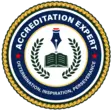How to get State Approval in Mississippi
Securing a license for a non-accredited university in Mississippi is a careful process guided by stringent regulations, standards, and procedures set forth by the Mississippi Commission on College Accreditation (MCCA), among other regulatory bodies. This guide provides a comprehensive roadmap for prospective university founders to navigate the complexities of the Mississippi higher education approval process, covering the legal, academic, and operational benchmarks essential for establishing a successful educational institution.













